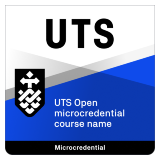During this microcredential, you will meet and work with a dedicated course facilitator who will support your learning and engagement with the teaching resources designed by the lead academic and team of experts, in the Faculty of Engineering and IT.
This course is structured into four modules. Each module comprises self-study materials and facilitated online sessions. The modules and key topics covered are:
Module 1 - Introduction to data analytics for cyber security
- This module introduces cybersecurity and features an introduction to key cybersecurity models and attack types and the value of applying data analytics in a cyber security context.
Module 2 - Fundamental data analytics using Python
- This module introduces data analysis tools for cybersecurity using Python and features programming tutorials, key libraries including NumPy and Pandas and an introduction to data visualisation with Matplotlib.
Module 3 - Packet analysis for security
- This module covers network characteristics, OSI 7-layer models, TCP/IP, packet analysis and packet sniffers and a case study of insider threats.
Module 4 - Network package analysis and DDoS attacks
- This module introduces and evaluates network packet analysis tools, different types of DDoS attacks and detection and response options and a case study of an external attack.
The course is delivered in a scheduled format over ten weeks.
Each week (during weeks 1 to 8) you will participate in an online session where you will have the chance to apply what you've learned, ask questions and hear from other participants who are taking the course with you. The workshops are led by the course facilitator.
Weeks nine and ten are planned to give you time to complete the final assignment, with support and scheduled Q&A sessions provided.
Course delivery
This course includes weekly, live, one-hour online tutorials and one-hour weekly Q&A sessions facilitated by an expert UTS academic, supporting self-study and online learning activities.
Case studies of real-world applications illustrate applications of key tools and techniques. The workshop sessions focus on hands-on activities and examples. Regular formative quizzes throughout the microcredential will allow participants to gauge their progress.


















